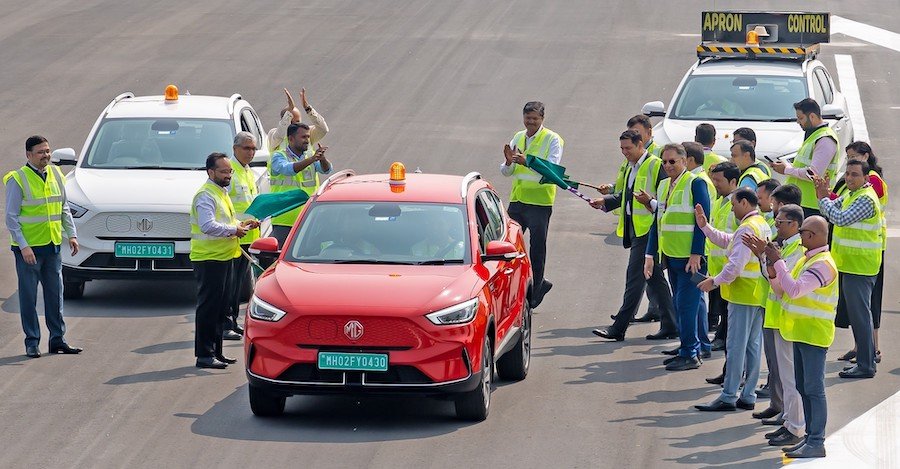Mumbai Airport Adds 45 EVs to Its Fleet, Wants To Be Fossil-Free by 2029

Pollution is a hot topic in the Asian country, so the decision to stop relying on fossil fuels resonates with what many people (including legislators) want.
Be the change you want to see in the world, right? Whilst an inspiring saying, Mahatma Gandhi did not utter these words. Instead, he spoke about a much deeper spiritual concept that revolved around this very notion – change yourself, and the world might follow.
As one of India’s largest aviation hubs, Mumbai’s CSMIA airport makes sure that more than 50 million people travel safely domestically and internationally every year. Its employees and partners work around the clock to ensure that everything runs smoothly, and this involves having the right vehicles for every job. Airports like this one in Mumbai require very large sites, so a huge area must be covered in as little time as possible. That’s why, when you’re comfortably waiting to take off, there are all sorts of vehicles running around, each being used by people to finish their tasks faster.
So, it makes sense to have cars that are always ready to be deployed for any kind of job. Be it security, maintenance, transport, or any other job, these ground vehicles are essential to any big airport.
Mumbai’s CSMIA proudly showed its new EVs. It’s a collection of Tata Nexon, Tata Tigor, and some MG ZS. These immediately replace fossil fuel-powered vehicles that were in use until now. Next year, the airport will replace another 60 dinosaur-powered cars with EVs. However, the names of the upcoming vehicles have not been disclosed at the time of writing. The airport plans to have only all-electric ground vehicles by 2029.
The Tata Nexon EV is a small crossover SUV that boasts 129 hp (131 ps) and a 30.2-kWh battery good for around 186 mi (300 km) of official range on a single charge. The Tigor, on the other hand, is a four-door sedan that comes with a 59-hp (60-ps) motor and a 26-kWh battery which should be enough for a locally rated range of 193 mi (310 km). Both are capable of fast charging and are made in India.
The Chinese-made MG ZS EV is a two-row SUV that offers a maximum range of 273 mi (440 km) and makes use of a 140-hp (142-ps) motor that feeds itself from a 50.3-kWh energy storage unit.
Finally, Chhatrapati Shivaji Maharaj International Airport says this will cover about 25% of its Scope 01 ambitions. This is used to define greenhouse gas emissions that an entity owns and can control.

Nouvelles connexes


